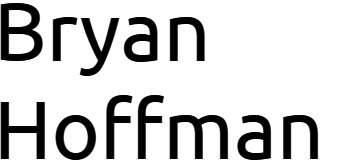I’ve started a new role and taken ownership of a project that really excites me: an internal wiki.
Over time, an internal wiki can become a central hub for an organization. It all boils down to storing, managing and distributing knowledge. Everything can be kept on a centralized, collaborative hub.
Instead of the constant sense of déjà vu and endless email threads, let’s write pages for troubleshooting firewalls and VPNs and let people help themselves. Done right, it’s like having the IT department’s most common help desk tickets flow-charted in advance… and that’s just the value a single page can create.
What it might do for you
An internal wiki is great if you have or plan on having remote employees, but it’s also great for new employees. There’s a lot involved in the on-boarding process. A wiki can serve as a sort of scaffolding to get your new hires to positions of competence faster. Let’s run through a hypothetical:
A new hire (or any employee really!) has a question. They might spend the greater part of a day tracking down the appropriate place and person to go to with their question. If they had an internal wiki in their organization, they might try searching some keywords related to their question. If 50% of the time, this yielded a helpful page that helped them solve their issue, the organization would save an incredible amount of time. But what about the other 50% of the time? What happens then?
Let’s say a new hire was able to locate a page on the wiki. There’s an issue they’re having but the article’s not clear. It’s insufficient to fix their problem. Having a bunch of information available won’t always solve every issue, but even just finding the right person to ask a question is a struggle. If a point of contact is included somewhere on the wiki page, our hypothetical new hire can easily reach out to the person who owns the project, feature, process, or whatever that page is about.
Someone reaching out to the owner of a page serves as a natural cue to revise the article. Missing information can be included and confusing points can be clarified. Isn’t that clever?
Every time someone new joins your organization, there’s loads of opportunity to refine the wiki for added value in the future.
What’s in it for me?
I think you should start a wiki for your organization! Yes, you, as in the you reading this right now sense. It’s got several perks: You own a living project and learn extremely valuable skills, key people will be very impressed with your go-getter attitude, and if you pull it all off correctly, your name ends up everywhere!
The work you put in accrues interest, and you’ll get recognized as the wiki makes ripples in your organization. Anyone can do it! Get this, you don’t even have to be tech-savvy or good at writing to start.
You don’t have to bake your own Wiki
You don’t have to bake your own wiki. It’s not something you have to create for yourself. I’ve chosen dokuwiki, but I’m aware that several alternatives exist. I’ve previously used tiddlywiki and I like how read the docs looks.
Dokuwiki comes with my full recommendation, but whatever you decide to go with, you don’t need much in the way of fancy features. You’ll be alright with almost any setup, so long as you have a search feature available. I make this recommendation because searching information is faster and less resource intense than curating information.
It’s ALIVE!
Wiki’s are best when they grow organically over time. If you get the conditions and structure favorable from the beginning, the wiki will develop into something great, otherwise you’ll end up with a spaghetti labyrinth.
It’s important to categorize things early on so that information, links, and pages all fall into the right place. The wiki’s overall complexity will increase, so always strive to make it as easy as possible to locate information and corresponding points of contact.
The overall structure is going to be content dependent, so it’s hard to suggest a fail-safe method. The real point is you need to always be improving the wiki. Set reminders to come back to newer articles and make it a habit to peruse the wiki. You should be re-reading pages and revising when appropriate. Articles are never complete, and nothing’s ever final. The wiki is alive!
How a Wiki grows
There’s a good method to grow the wiki: If you’ve searched for a piece of information more than once, it’s time to note that. When this happens, plan to get a snippet of text somewhere in the wiki. If you need to, create a new page for the concept.
When creating an entirely new page for a concept, it’s best to start with the table of contents. What will your major subjects and headings be? Write them down and then try to wrangle them into a good order. Once you’ve got a skeleton of a page, go section by section filling in content as appropriate. It doesn’t have to be perfect. Remember: You’re always improving the wiki.
It seems simple, but this heuristic is all that is necessary to build a store of incredible value for your organization. If it’s not being done already, take the initiative and suggest starting an internal wiki.
